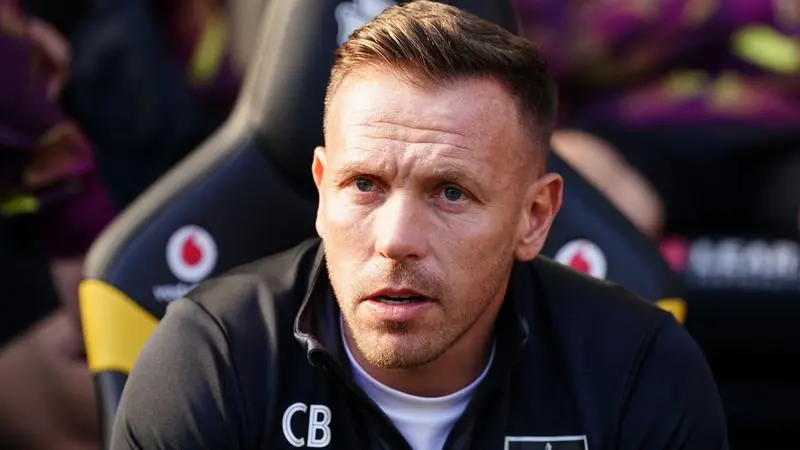Q&A: Why have Wales turned to Craig Bellamy and what next for the national team?

Wales have appointed Craig Bellamy as their new head coach on a four-year contract.
Bellamy won 78 Wales caps between 1998 and 2013, and this is his first senior management role after assisting Vincent Kompany at Anderlecht and Burnley.
Here, the PA news agency examines why Wales turned to former captain Bellamy and what is next for the Dragons.
Why did Wales need a new manager?

Bellamy’s predecessor Rob Page took interim charge in November 2020 after Ryan Giggs stepped away due to his involvement in a court case and was appointed on a permanent basis in September 2022. In that time, Page had led Wales at the delayed European Championships in 2021 and guided them to their first World Cup for 64 years. But Wales flopped in Qatar and continued to struggle in the post-Gareth Bale era, failing to qualify for Euro 2024 before embarrassing June friendlies against Gibraltar and Slovakia ended with Page’s sacking.
Who was in the running for the job?

The Football Association of Wales was open to the idea of having a non-Welshman in charge for the first time since 1999. Thierry Henry was widely touted, having done his coaching badges at the FAW, but the former Arsenal forward is manager of France’s Olympic team and would not have been available until mid-August. Georgia boss Willy Sagnol, Strasbourg manager Patrick Vieira and Oxford head coach Des Buckingham were also linked with the post, while former FAW technical director and assistant manager Osian Roberts ruled himself out to stay at newly-promoted Serie A side Como.
So how did Bellamy win the race?
The 44-year-old former Liverpool, Manchester City and Newcastle forward almost got the job in 2018, narrowly losing out to Giggs. Six years on, the FAW feels Bellamy is better equipped to do the job given his time on the touchline alongside Kompany. Bellamy was in interim charge at Burnley after Kompany went to Bayern Munich in May and there were suggestions that he could remain there as Scott Parker’s assistant. But Bellamy’s passion for Wales – he proudly wears a tattoo tribute to Owain Glyndwr, the last native-born Welshman to claim the title Prince of Wales – meant he was never going to turn his country down.
What can we expect from Bellamy?
As a player, Bellamy was a firebrand who courted controversy on and off the field as much as he left defenders trailing with his blistering speed. Although it has been said he has mellowed with age, do not be surprised to see Bellamy cut a colourful figure on touchlines or in press conferences. What can not be disputed is that Bellamy is a student of the game – even as a young man he would head off to the continent to analyse how teams played. Bellamy cut his coaching teeth in the Cardiff academy and will hold no fear promoting young talent into his Wales squad.
What are Wales’ targets?
The FAW has stressed the ambition is to “consistently qualify” for major tournaments after reaching Euro 2016, Euro 2020 and the 2022 World Cup. Bellamy’s deal will take him through qualifying periods for the 2026 World Cup and Euro 2028, which will be co-hosted by Wales. Despite Wales’ failure to reach Euro 2024, there is no shortage of talent – Brennan Johnson, Daniel James, David Brooks, Ethan Ampadu, Harry Wilson, Jordan James and Neco Williams. Watch out too for teenagers Charlie Crew and Lewis Koumas, already capped at senior level. Euro 2016 veterans Aaron Ramsey, the captain, and Ben Davies also remain as Bellamy prepares to make his bow at home to Turkey in the Nations League on September 6.
